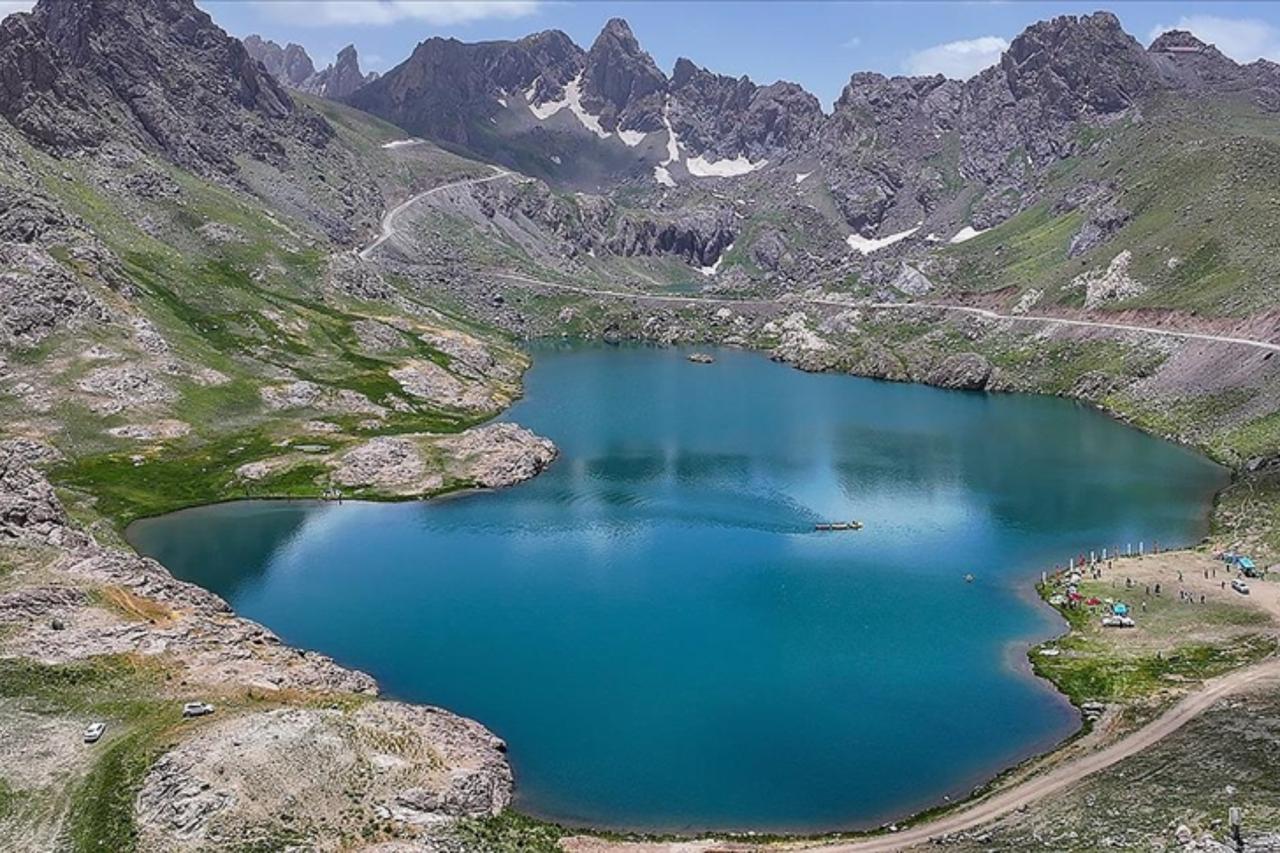
Turkish Ministry of Culture and Tourism’s “Bir Anadolu Senligi” (Anatolian Festival) revealed the tourism potential of a southeastern city once scarred by terrorism amid Türkiye's 40-year-long fight to secure its borders.
Hakkari, once associated with decades of terrorism that instilled fear among Turkish citizens, is now secure and ready to shine. Its safety is remarkable, and its tourism potential is immense, similar to its neighboring provinces, such as Mardin and Van.
Nestled at the southeastern tip of Türkiye, this remote border city has long been associated with conflict and isolation, partly due to its mountainous geography and proximity to two borders, which made it more prone to security leaks. Today, however, Hakkari is striving to shed that reputation and open its doors to tourism. Unlike its more established neighbor, Van, which hosts tens of thousands of foreign tourists, Hakkari still lacks a strong tourism infrastructure, yet there is a feeling of optimism in the air. The festival itself is an ambitious cultural celebration, aiming to transform Hakkari into a vibrant cultural stage.
Governor Ali Celik, speaking to Türkiye Today, emphasized that Hakkari is now a safe and welcoming destination, with ongoing projects to make the city more accessible. Plans are underway to connect the city to Yuksekova Airport with a road that will reduce travel time to just 13 minutes, while new tourism zones are being developed to highlight Hakkari’s natural beauty.
Celik described Hakkari as “the city of peace, mountains, and brotherhood,” pointing to its potential for winter sports, climbing, trekking, and cultural tourism. His confidence was palpable—he sees tourism as a powerful driver of economic growth and stability for the region.
He said as a governor, he does not face any security problems, and is welcomed by the public. Thousands of young people screamed with joy when they saw him entering the concert venue of Turkish singer Murat Dalkilic. I would have a hard time believing it if I did not witness the moment myself.
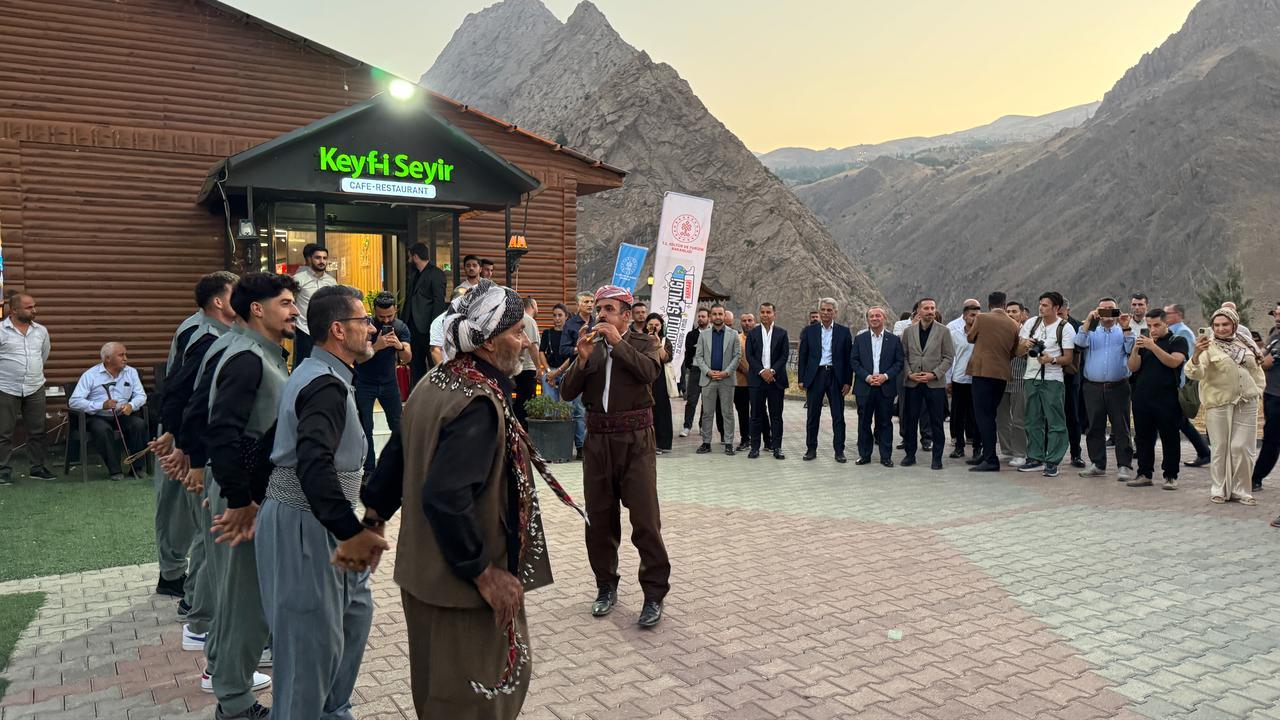
As we traveled through the city as part of a journalist group, the stunning natural scenery spoke for itself. Snow-capped peaks tower over narrow valleys, and the region’s frozen glacial lakes glitter like gems in the highlands. Hiking and mountaineering enthusiasts will find themselves in paradise here; the raw, untouched beauty of Hakkari is unlike anywhere else in Türkiye.
But my most vivid impressions of the trip came from its cuisine. Hakkari’s culinary traditions are rich, unique, and deeply tied to its cultural identity.
I sampled Qiris, often described by locals as a true “healing dish,” which is one of Hakkari’s most distinctive and comforting specialties. This traditional recipe reflects the region’s mountainous landscape and pastoral culture, bringing together lamb, grains, nuts, and tart flavors in a way that feels both rustic and deeply nourishing.
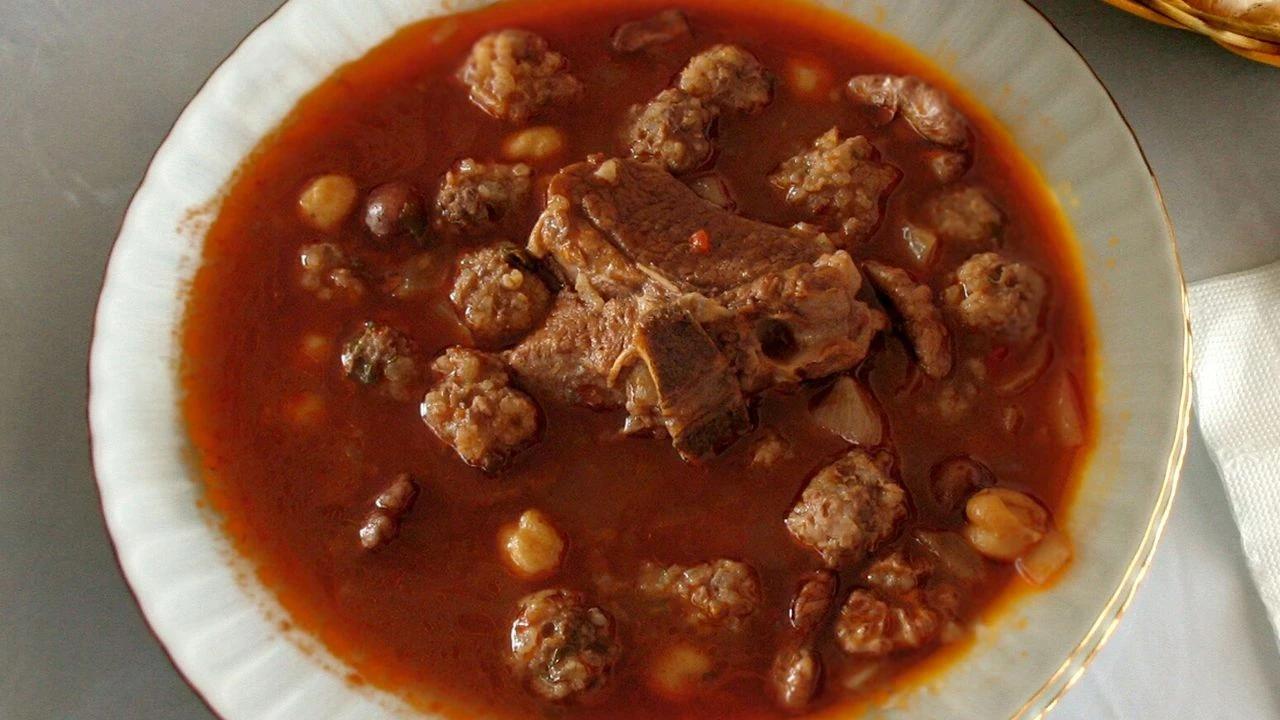
Another standout was Keledos, a hearty lamb stew thickened with local yogurt and wheat, flavored with wild herbs that grow in the surrounding mountains. These dishes, prepared with recipes passed down through generations, could easily become a centerpiece of Hakkari’s tourism branding, like Gaziantep and Adana.
The festival itself was an impressive undertaking. Organized by the Ministry of Culture and Tourism’s Directorate of Living Heritage and Cultural Events, this year marks the festival’s first edition, running through five cities: Hakkari, Tunceli, Sırnak, Bingol, and Bitlis.
The choice of locations is telling: Türkiye aims to showcase its once terrorism-hit southeastern cities on par with other popular destinations.
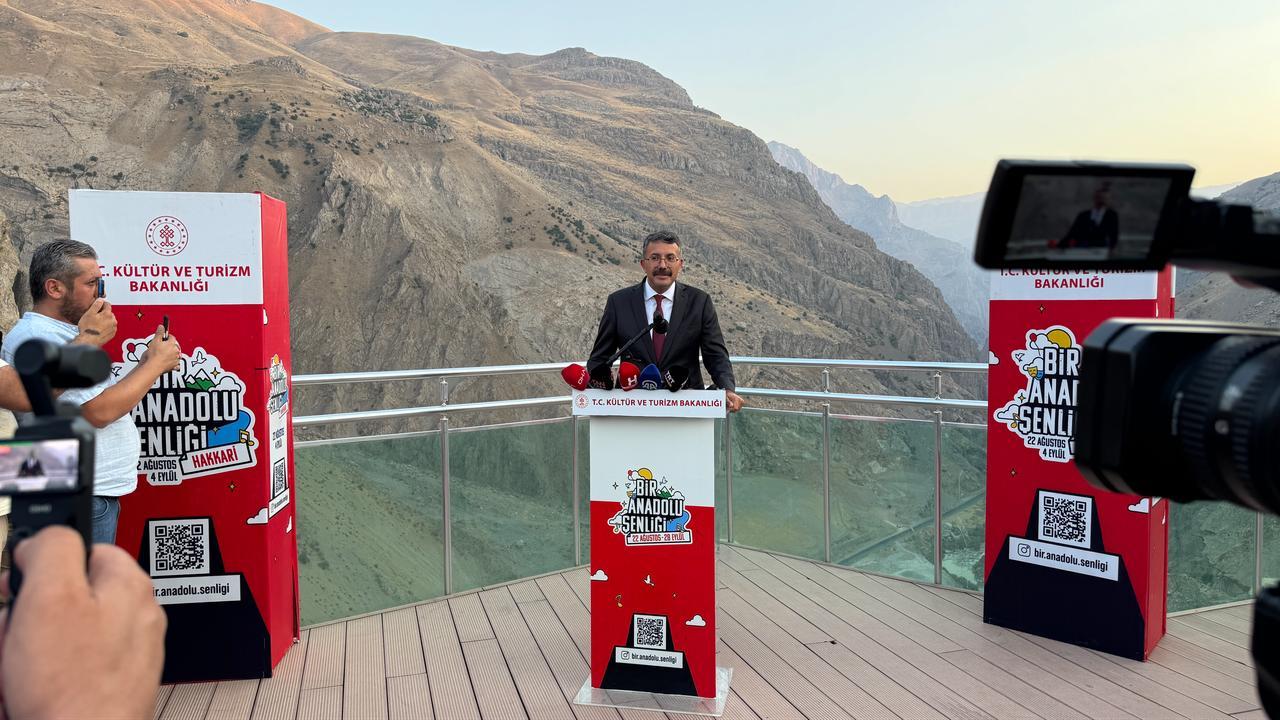
Deputy Minister of Culture and Tourism Nadir Alpaslan, speaking at the opening ceremony, said the festival was designed to showcase the beauty and cultural richness of Türkiye’s eastern regions, as well as to demonstrate that peace and security are thriving here. “This program is not only a celebration of art and culture but also a symbol of unity and stability in our country,” he said.
The lineup reflects this ambition: concerts by popular movie stars such as Murat Dalkilic, Bengu, and Merve Ozbey; performances from the Istanbul State Opera and Ballet. Traveling libraries, children’s theaters, and a mobile Canakkale War Museum have also been set up to reach every corner of the city.
Mevlana Park and Merzan City Stadium have been transformed into a colorful “Children’s Village,” complete with workshops, games, and theater performances like The Kitchen of Wonders and Orfin’s Music Box. The festival is a true cultural feast, breathing new life into streets that once felt far removed from Türkiye’s tourism map.
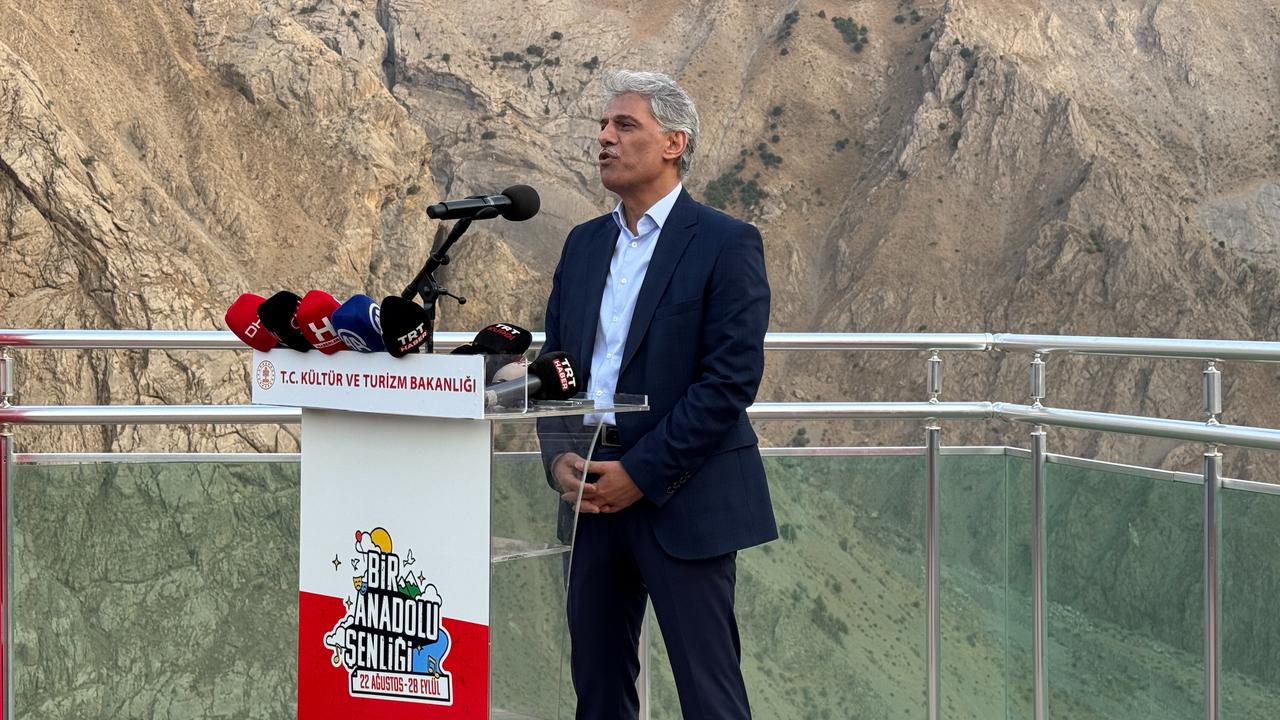
Hakkari’s story is changing, and this trip made it clear that tourism is at the heart of its transformation. While the infrastructure is still developing, the city’s raw landscapes, unique food culture, and resilient spirit give it a distinct allure. Locals greet you with warmth, often placing a hand over their heart—a gesture of genuine welcome. Governor Celik’s words about brotherhood and harmony resonated deeply as I explored a place that has endured hardship yet radiates a strong sense of community.
For adventurous travelers, Hakkari offers experiences that are hard to find elsewhere: trekking through dramatic mountain passes, exploring hidden highland lakes, and tasting a cuisine deeply rooted in geography and history. The Anatolian Festival is only the beginning of a larger movement to put Hakkari on the tourism map, positioning it not just as a cultural destination but as a symbol of renewal and resilience in southeastern Türkiye.
As I left Hakkari, I felt I had witnessed a city on the brink of reinvention.
The combination of breathtaking nature, unique gastronomy, and a government-backed push for cultural tourism makes Hakkari a destination worth watching. If these efforts continue, it may soon rival the region’s established tourist hubs—offering not just adventure, but a story of transformation that travelers will want to experience firsthand.